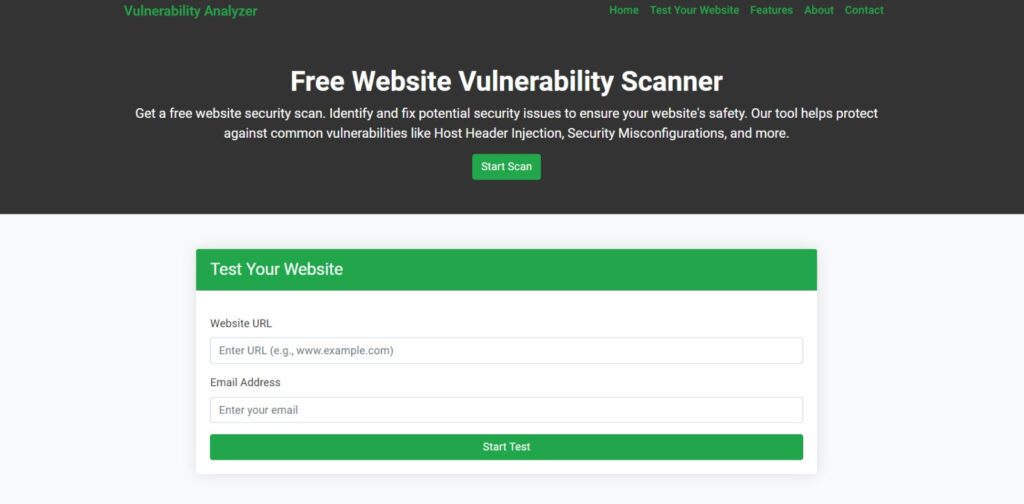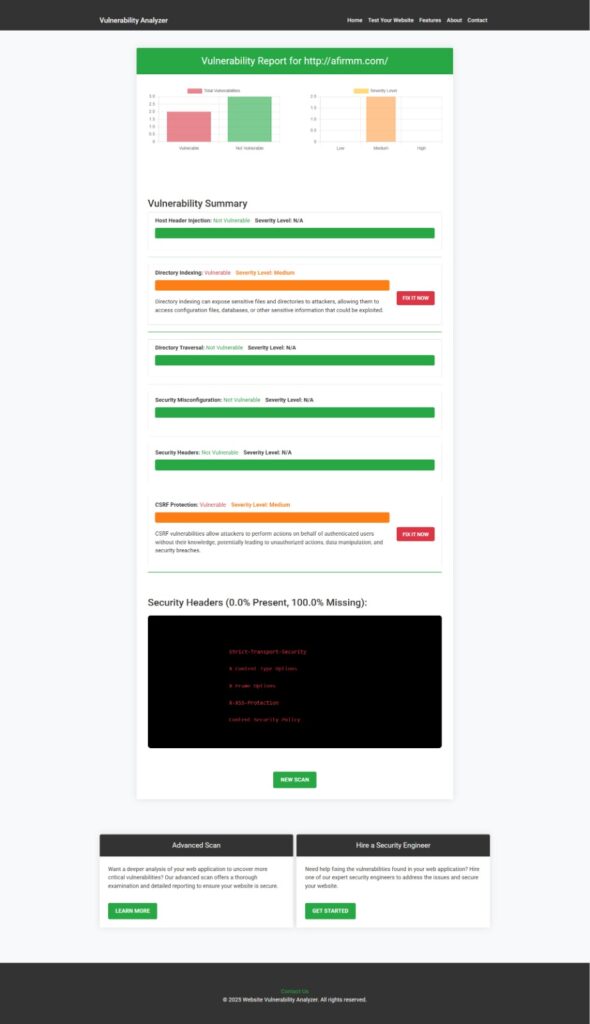Session Replay Attack in OpenCart: A Complete Guide with Fixes & Code Examples
OpenCart is a popular open-source eCommerce platform, but like any web application, it is not immune to security vulnerabilities. One critical yet often overlooked threat is the Session Replay Attack in OpenCart.

In this blog post, you’ll learn what session replay attacks are, how attackers exploit them in OpenCart stores, and—most importantly—how to fix and prevent them with code examples, real-world scenarios, and practical mitigation techniques. We’ve also included images from our website vulnerability scanner and a full sample report showing detected issues.
✅ What is a Session Replay Attack?
A session replay attack involves capturing valid user session tokens and reusing them to impersonate that user without needing credentials. This typically happens when session tokens are:
- Not expired correctly after logout or inactivity
- Not bound to IP address or user-agent
- Transmitted over unencrypted channels
💥 How Session Replay Works in OpenCart
Here’s a typical attack flow:
- Victim logs into an OpenCart store.
- Attacker steals session token (via sniffing, XSS, or insecure cookies).
- Attacker uses the token to hijack the session and perform actions as the victim.
🔍 Real-World Risk Example in OpenCart
Many OpenCart stores store session identifiers in cookies without setting flags like HttpOnly, Secure, or SameSite. This exposes the session token to JavaScript-based attacks or even plain-text transmission over HTTP.
// Insecure session cookie example
setcookie("OCSESSID", session_id(), time()+3600);✅ Best Practices to Prevent Session Replay Attack in OpenCart
Below are practical solutions to mitigate session replay attack in your OpenCart setup:
🔐 1. Use Secure, HttpOnly, and SameSite Cookies
Secure your cookies at all levels:
session_set_cookie_params([
'lifetime' => 0,
'path' => '/',
'domain' => 'yourdomain.com',
'secure' => true, // Only send over HTTPS
'httponly' => true, // Not accessible via JavaScript
'samesite' => 'Strict' // Strict cookie isolation
]);
session_start();This ensures your session token is:
- Only sent over HTTPS
- Not exposed to JavaScript (which helps mitigate XSS)
- Not sent across cross-site requests
🔄 2. Regenerate Session IDs on Login
Regenerating the session ID after login prevents fixation:
// After successful login
session_regenerate_id(true);This destroys the old session and creates a new one, reducing the risk of session fixation and replay.
⌛ 3. Expire Sessions After Inactivity
Implement automatic session timeouts:
// Example timeout code
$timeout_duration = 1800;
if (isset($_SESSION['LAST_ACTIVITY']) &&
(time() - $_SESSION['LAST_ACTIVITY']) > $timeout_duration) {
session_unset();
session_destroy();
header("Location: login.php");
}
$_SESSION['LAST_ACTIVITY'] = time();This ensures sessions aren’t valid forever and limits the attacker’s window.
📍 4. Bind Sessions to IP or User Agent
You can enhance security by binding sessions to user identifiers:
// Store IP and User Agent on login
$_SESSION['user_ip'] = $_SERVER['REMOTE_ADDR'];
$_SESSION['user_agent'] = $_SERVER['HTTP_USER_AGENT'];
// On every request, validate
if ($_SESSION['user_ip'] !== $_SERVER['REMOTE_ADDR'] ||
$_SESSION['user_agent'] !== $_SERVER['HTTP_USER_AGENT']) {
session_unset();
session_destroy();
header("Location: login.php");
}🚨 5. Monitor with Vulnerability Scanner
You can analyze your OpenCart site’s session handling using our free tool to test Website Security.
📸 Screenshot of our free vulnerability scanning tool interface:

This helps identify unsecured session tokens, improper headers, and other exploitable weaknesses.
📸 Screenshot of a vulnerability report generated by the free tool showing insecure session flags to check Website Vulnerability:

🔗 Related Security Resources
Explore our other detailed security guides for OpenCart:
- 🔐 Prevent XML Injection in OpenCart
- 🛡️ Prevent CSP Bypass in OpenCart
- ✅ Fix Weak API Authentication in OpenCart
- 🔄 Web Cache Deception in TypeScript ERPs
- 📚 Visit All Cybersecurity Blogs
🧪 Advanced Session Management Techniques
1. Using Tokens in Headers for APIs
If you’re building OpenCart APIs or front-end JavaScript clients, avoid cookie-based auth. Use bearer tokens instead.
fetch('/api/user/details', {
headers: {
'Authorization': 'Bearer ' + token
}
});Always refresh tokens using short-lived access tokens and longer-lived refresh tokens.
2. Secure Session Storage in OpenCart
Make sure your session handler is secure. Consider using the database for more control:
// In config.php
ini_set('session.save_handler', 'user');
// Then implement session handler class with database reads/writes3. Check Session Integrity on Sensitive Actions
Before sensitive operations (e.g., changing email, processing payment), verify session authenticity again using re-authentication or two-factor verification.
💡 Are you a developer or an IT agency?
You can now offer our pentesting services under your brand or earn referral commissions.
👉 Explore our Agency Partner Program:
https://www.pentesttesting.com/offer-cybersecurity-service-to-your-client/
🧠 Final Thoughts
The Session Replay Attack in OpenCart is not just theoretical—real-world attackers actively look for misconfigured session handling to hijack user accounts. By following the above best practices, applying the code snippets, and continuously monitoring your site with tools like ours for a website security check, you can stay ahead of attackers and build trust with your users.
🛡️ Pro Tip: Don’t just fix once—schedule regular audits to ensure updates don’t introduce regressions.

